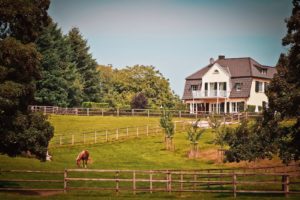Ownership of a Farm
Divorce is never easy, but it is particularly complicated when a farm is involved. The farm is often not owned directly by the former couple, and it may have been passed for generations of the family in different ownership arrangements that may include a limited corporation with multiple shareholders, and possibly trusts or partnerships. Unlike cases without farms where ownership is often straightforward for property division, the first step in farming cases is to evaluate the ownership structure and what the interest is of each divorcing spouse. This often involves experts, particularly Chartered Business Valuators, who will prepare valuations that address tax issues and other complexities.
Appraisals and other Information Needed
Appraisers will provide values of the inventory, quota, land, crops, equipment, buildings and livestock. There will be specialized valuators for those assets and you may already know the individuals who will do the appraisals. To value the shares of the corporation, your legal and accounting team will need to see articles of incorporation and the shareholders’ agreements, as well as trust documents and other supporting documentation.
Property Division
Property division for separating spouses in Ontario is governed by the Family Law Act, and subsection 5(1) requires “equalization of net family properties”, which may be best described as taking the accumulated increase of each spouse’s net worth over the course of the marriage and making that accumulation equal. Gifts from third parties and inheritances are excluded, but only if they are proven and traced to an asset other than the matrimonial home at the date of separation. Date of marriage assets are deducted from net worth (called “net family property”), except a matrimonial home, defined as the residence where the spouses ordinarily resided at separation, if this is the same property as where the parties resided at marriage (usually the farmhouse). A separating spouse may have a possessory right to live in the matrimonial home after separation, regardless of ownership or being involved in the farm’s operations.
It must be considered whether a farm property was gifted or inherited by one spouse either before or after the marriage, because either way, that would mean that the farm does not need to be divided (“equalized”) as of the date of marriage. Gifts or inheritances received before the marriage, other than the matrimonial home, are “date of marriage deductions” that are protected under the law.
Court Not To Impair Farm's Operation
Section 11 of the Family Law Act protects the family farm from a Court Order that would seriously impair its operation or end up requiring a sale. The prohibition of a sale is mandatory unless there is no other reasonable alternative to satisfy an award - usually an “equalization payment” - due to a spouse. The Court must consider all other possible solutions to satisfy the payment. Section 11 recognizes the importance of the survival of a family farm in society, and it is clear that the farm’s operation should survive in the context of marriage breakdown.
Unmarried Spouses
It should be noted that, in the event that the parties are not married, there may still be claims by way of a constructive trust and unjust enrichment for beneficial interest in property. There is also the possibility of a joint family venture claim, which is a newer form of an unjust enrichment claim, which may result in the property of unmarried spouses being divided much like the property of married spouses with an equalization payment. The test for a joint family venture claim is complex and would require a lawyer’s evaluation.
Support
The spouse who is not keeping the farm operation or being involved in any way will want spousal support, and child support if there are dependent children. That spouse has a clear interest in the survival of the farm because the success of the farming operation is the means by which support will be paid. That spouse will want to ensure that the mechanism of paying an equalization payment is not severely detrimental to the farm. The law allows ten (10) years from the date of separation for the equalization payment to be satisfied, meaning it may be paid in increments over time, or simply deferred with security for the payment by way of life insurance or other mechanism.
Survival of Farm
The effect and cost of divorcing, while maintaining a family farm for future generations, is clearly challenging, not only emotionally but financially. The best way to allow the farm to survive is through assembling an experienced and knowledgeable legal and accounting team, and either negotiating or mediating the dispute. Court is costly and protracted litigation may impair the operation of the farm, even if that’s not the intention. Negotiation or mediation may allow you and your spouse to use joint experts, saving money and time as compared to duelling experts in court.
Protecting Farm in the Future
The focus should be on a fair resolution that allows the farm to recover from the divorce, with succession planning for your children, and future generations, for the future. It is important to negotiate and sign a Cohabitation Agreement or Marriage Contract for any future relationships, and to encourage your children to do so. The best way to protect a family farm is to contemplate the effects of any future divorce, and have a Contract in place that, in particular, opts out of any property division. Estate and succession planning is also vital.
Consult with a Lerners Family Law Lawyer
Whether it’s a divorce or marriage contract, the Lerners Family Law Lawyers work with you on the best solution for your needs and create the necessary legal documents to protect your farm assets.
For more information, please contact us at 519-672-4510.



